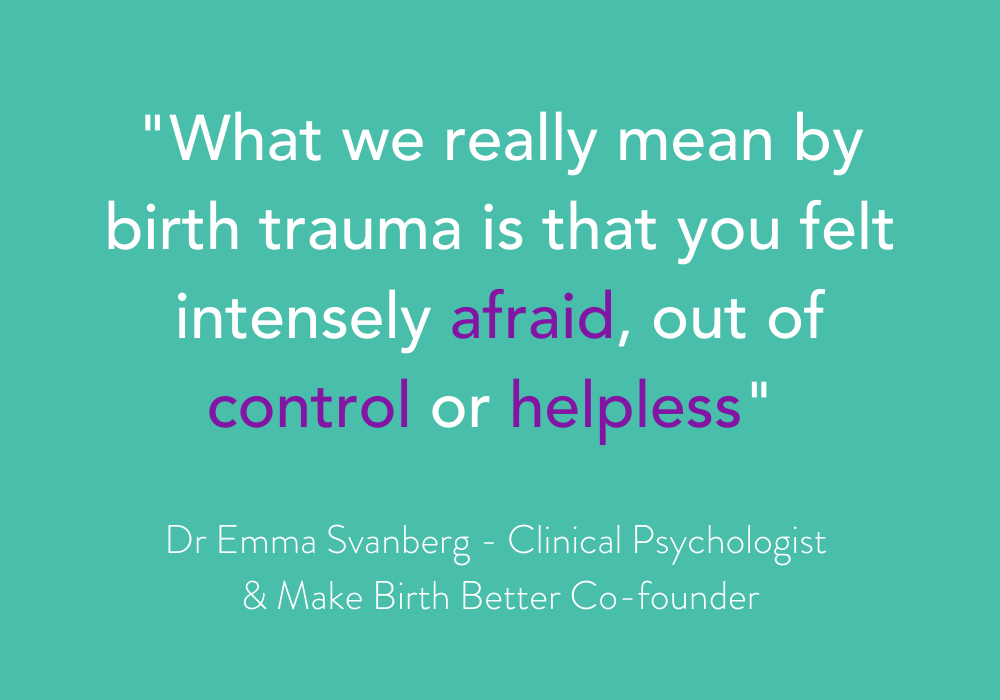Birth and trauma
Two words that don’t mix?
The day your baby is born is often called ‘one of the happiest days of your life’. It doesn’t really click in our brains that having a baby can be hard, or even traumatising.
We link trauma to things like war, disaster or abuse.
Unlike other traumatic events, birth can be positive – and is – for many people. So when you had a difficult experience and you mention this to those around you, comments like ‘well, at least your baby is healthy, that’s all that matters’ can leave you to feel that what you’re going through is being dismissed or belittled.
But birth trauma is real.
And it happens often: at least 1 in 4 women find some aspect of their birth traumatic. 1 in 25 women of these women will develop Post-Traumatic Stress Disorder (PTSD).
The term ‘birth trauma’ is confusing.
Because it sounds like we’re just talking about birth and traumatic experiences that cause PTSD. Yet it’s much bigger than that. It includes any difficult experience on your journey: from trying to conceive, to pregnancy and beyond. Anything that left you feeling intensely afraid, out of control or helpless. And it includes physical injuries too.












Next
Move to How Can I Find Help?, Partners Matter Too, Birth After Trauma or back to the Parents Support page.